BCBC Conference Preview & Autumn Newsletter 2018
The 2019 British Cattle Breeders Club Annual Conference will be held at the Telford Hotel & Golf Resort in Shropshire from 21-23 January
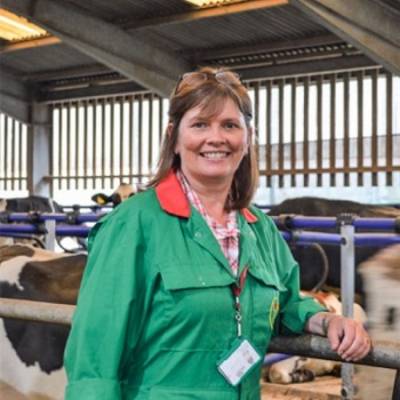
The conference will focus on ‘Building the Brand to Promote our Uniqueness’ and promises to be an inspiring and lively event for beef and dairy cattle breeding, which brings together key speakers from home and abroad.
Message from the BCBC Chair, Anya Westland
I repeatedly tell my students that change always brings opportunity and this unprecedented period in UK agriculture is no exception. Political change, population growth, climate change and the rise of consumer issues are among the challenges that provide us, as an industry, with a clear set of opportunities.
The 2019 Conference has the title ‘Building the Brand to Promote Our Uniqueness’ with the aim of highlighting these opportunities - whether they be the high health status of our herds, our branding opportunities, our diverse production methods or the enthusiasm and knowledge of those involved in the industry – and how we make the best possible use of them.
The range and experience of speakers for the 2019 Conference, which include NFU president, Minette Batters, and UK Chief Veterinary Officer, Christine Middlemiss, demonstrate that others share our vision on these opportunities. We are also bringing speakers from both hemi spheres and from countries that have already experienced huge changes in their markets and learnt to perform in a global market.
It is through the generous support of our sponsors, for both the BCBC and the conference that we can continue to develop this exceptional event which brings together the cattle breeding industry, farmers, scientists and students to share knowledge, debate issues and move the industry forward. I would also like to thank the club committee and club secretary, Heidi, for all the hard work that goes into providing a conference of this calibre.
I look forward to welcoming you to Telford in January 2019 and seeing what we can do to grab these opportunities and build our brand.
The 2019 programme has been announced, here is a snapshot preview of just a few of our keynote speakers
Minette Batters - Challenges and opportunities to promote the UK livestock sector
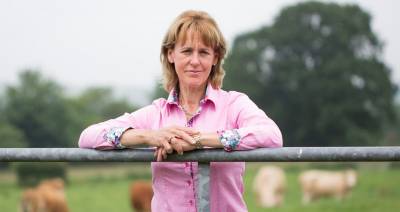
NFU President Minette Batters will discuss some of the key NFU activity within the livestock sector, particularly highlighting the NFU’s role in developing the Livestock Information Service (LIS) and the transformational effect this could have within the industry. She will discuss the opportunities LIS offers for utilising enhanced data in order to drive improvements to British agricultural productivity, while also delivering higher health, welfare and environmental outcomes. Minette feels that the LIS will help to underpin the UK’s reputation for producing some of the best meat and livestock products in the world.
In addition to her role in the NFU, Minette also runs a tenanted family farm in Wiltshire. The mixed farming business includes a 100-cow continental cross suckler herd, and a small herd of pedigree Herefords, as well as sheep and arable. Diversification includes horse liveries and the conversion of a 17th Century tythe barn into a wedding and corporate events venue. Minette co-founded the campaigning initiatives ‘Ladies in Beef’ and the ‘Great British Beef Week’.
She has been an NFU member from grassroots through to County Chairman; she served as Wiltshire’s Council delegate and also as Regional Board Chairman for the South West. Minette has also been a member of NFU Governance Board and served as NFU Deputy President for four years from 2014 to 2018, and is also a Trustee of Farm Africa.
Christine Middlemiss - Enhancing our UK USP- a CVO perspective on animal health and welfare
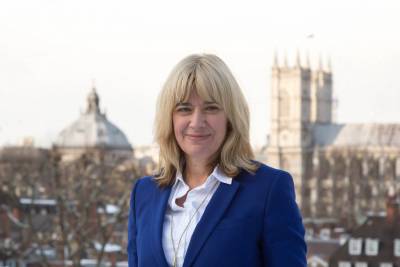
UK Chief Veterinary Officer (CVO), Christine Middlemiss, will discuss her perspective on UK animal health and welfare. She will provide an insight into her UK CVO priorities and her international role representing the UK livestock sectors. This session will include a presentation and discussion on: ‘UK animal health and welfare – an evidence-based approach?’ and ‘industry working in partnership with government to tackle endemic disease and improve productivity’. Christine will be keen to hear the audience views on these topics and is looking forward to a stimulating and thought-provoking discussion.
Christine was appointed as the UK’s Chief Veterinary Officer in March 2018, having been working as the CVO in New South Wales, Australia, where she led major improvements to biosecurity across many farming sectors.
Prior to moving to Australia, Christine led Defra’s Animal Traceability and Public Health policy team, where she was responsible for surveillance, including detection and response to new and emerging diseases such as Schmallenberg and Porcine Epidemic Diarrhoea. She is an experienced veterinarian. Christine joined the UK government services in 2008 as a Divisional Veterinary Manager at the Animal Health Agency (now part of Animal and Plant Health Agency).
Christine started her veterinary career in private practice in Scotland and the north of England with a specific interest in research, meat processing and livestock genetics.
Christine comes from a farming family in the Borders of Scotland, with a background in beef cattle and sheep.
Max Tweedie - Your story to tell?
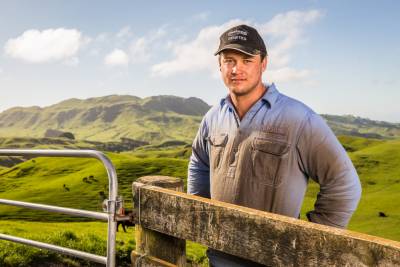
Max Tweedie, National Beef Genetics Manager, Beef + Lamb New Zealand Genetics, will give an insight into a project in New Zealand, progeny testing five breeds of bulls across 2,200 commercial cows a year, on a range of different systems and terrain. He will talk about how this project is using objective information to shape breeding decisions and breeders’ thinking in New Zealand. Max will focus in on how this kind of information can change the industry and increase the prominence of high-quality beef in a world where the consumer is key.
Max manages the National Beef Research Programme that spans close to 7,000 annual commercial beef and dairy cow matings on nine properties. He also breeds stud cattle and is farming in his own right in the North Island of New Zealand. Max is passionate about beef cattle and genetics and applying practical solutions to problems in agriculture.
Dr Stephen Miller - Genetic Advancements in American Angus
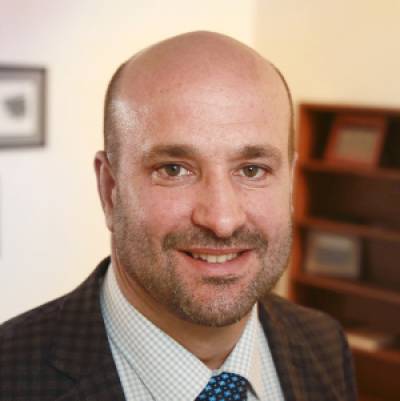
The American Angus Association (of which AGI is part) has grown to be the world’s largest beef breed association. The key to this success is largely attributed to its breeder’s ability to produce the type of cattle in demand from the commercial beef industry. Dr Stephen Miller’s presentation will focus on how the adoption of genetic recording and performance technology has helped aid this process and the Angus breed’s success in America.
Stephen has 25 years experience working with beef cattle, genomics and genetic technology. As part of his doctorate, Stephen was a visiting scientist at the Animal Genetics and Breeding Unit in Australia, where he worked on developments in multi-breed genetic evaluation systems before gaining a PhD from the University of Guelph where he served on faculty in beef cattle genetics for 14 years, culminating as Director of the Centre for the Genetic Improvement of Livestock there.
Stephen took on his role as Director at Angus Genetics Inc (AGI) in 2016, following his previous position as Principal Scientist with AgReseach Ltd, in New Zealand. As part of work at AGI, Stephen is helping to lead research on economic modelling of beef production, developing genomic and genetic tools for both cattle breeders and commercial cattle producers, as well as guiding research priorities for the Angus breed.
In 2017, Stephen was awarded the Mark of Excellence Award at the Beef Improvement Opportunities annual conference in recognition of his work in the field of beef genetic research.
Dr Robert Banks - Strategies for ensuring breeds’ viability in the genomics era, beef breeding as an information business
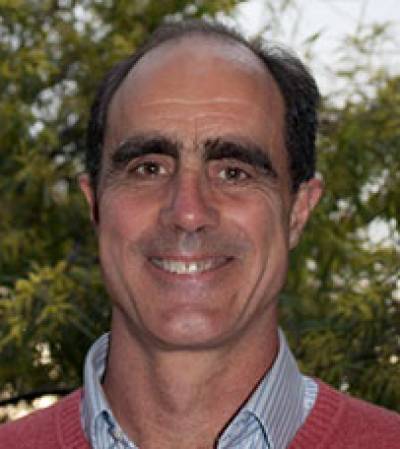
Since graduating from New England University with a PhD, Dr Robert Banks has undertaken extensive research and development work within the Australian livestock industry, focusing on genetic improvement. This has included nearly 25 years that were spent with Meat and Livestock Australia (MLA), where he established the genetic evaluation system for the Australian lamb and Merino industries. Robert was also responsible for the management of genetics and other research and development for MLA, directing funding for a wide range of projects, from pasture improvement to climate change adaptation.
More recently, Robert has helped to establish ‘Information Nucleus’ flocks of sheep and herds of cattle in Australia, to help test industry sires and identify leading sires for a variety of genetic meat production traits and underpin the implementation of genomic selection. Since taking on his current role as Director of the Animal Genetics and Breeding Unit at the University of New England, Robert has also guided projects focused on the genetic evaluation of dairy goats and honeybees.
The focus of Robert’s talk will be on the core principles of genomic selection for beef breeding and he will explore the strategies that breeds can adopt for optimising data collection, including from genetic livestock research, and for turning data into relevant information for beef producers, to help them improve their breeding choices and business decision-making.
Josh Dowbiggin - Building a brand – a retail insight
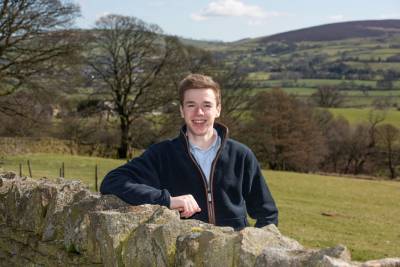
Since 1850, the Co-op has strived to go ‘above and beyond’ the needs of its customers and members, delivering a high quality food range that is produced ethically and in a way that gives back to the communities it serves.
Josh Dowbiggin will discuss how this ethos is no different with regards to the Co-op’s approach to, and on-going support of, British agriculture. Josh will explain why a long-standing commitment to British farmers and growers is such a vital part of the Co-op’s model, detailing how the Co-op has already invested in farming communities and how they plan to carry on with this commitment in the years to come.
Josh graduated from Harper Adams University in 2018 with a BSc (Hons) degree in Agriculture, which included a placement year with the Co-op as an Undergraduate Agricultural Coordinator. Josh was also awarded the Farmers Weekly Ag Student of the Year Award in 2017 and writes an opinion column in the Farmers Weekly magazine on a monthly basis.
Bronwen and Francis Percival - Heritage Breeds and the Taste of Place
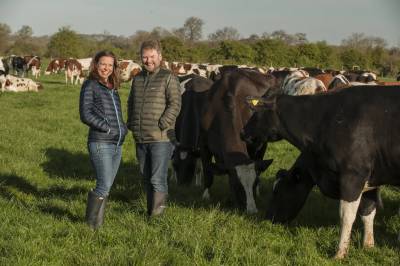
Francis and Bronwen Percival are the husband and wife team behind the book Reinventing the Wheel: Milk, Microbes and the Fight for Real Cheese, which aims to make the technical side of cheese production more accessible. Together they bring a wealth of experience in food and drink journalism, cheese buying and the science of artisan cheese.
Cheesemaking represents an increasingly popular option for small, to medium-sized farms looking to add value to their milk. However, farming systems optimised for liquid milk production do not necessarily produce the best cheeses. Francis and Bronwen will discuss the role of breed in cheese-farming systems, and how heritage breeds farmed in extensive systems offer the opportunity to make unique tasting cheeses.
Andy Venables - Positive Branding Opportunities
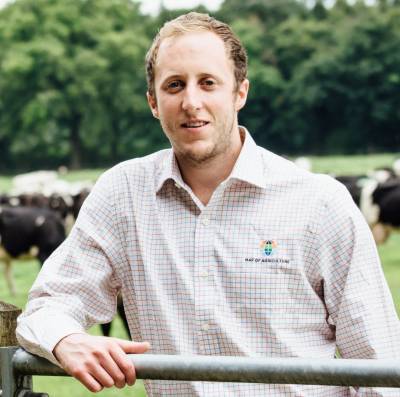
Andy set up Hillsgreen Marketing Consultants in 2016 after working for six years as Commercial Director in a digital marketing agency. The consultancy aims to bring a fresh approach to marketing, business planning and strategic growth to businesses in the rural sector. Andy is also a director in the family dairy farming business and Country Advisor for Map of Ag, which utilises innovative technology to improve farm performance.
Andy feels that with Brexit on the horizon and increased pressure on the livestock industry from animal activists, it is vital that we look to actively promote what we do as an industry and make a positive impact both at a national and international level. Andy will speak about where the opportunities are for the industry, what we can learn from other successful brands/industries, and what we can all do to help.
Bryce Cunningham - Changing dairy, our attempt so far
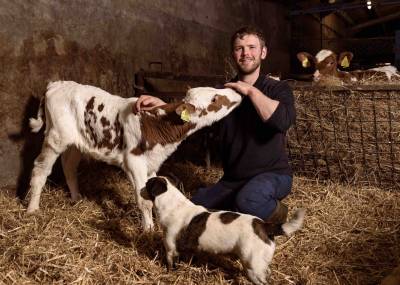
Bryce Cunningham will discuss the business changes that he made in response to a record low milk price and the death of his father in 2014, which culminated in his business making a £100,000 loss during his first year of farming.
As part of his presentation, Bryce will outline how he undertook the two-year long switch to establishing an organic, calf-at-foot dairy herd and how he successfully developed links within his local community and further afield in order to sell milk directly to customers.
Bryce is the third generation to lease Mossgiel Farm, where he now runs an organic ‘micro dairy’ based on his own herd of 80 Ayrshire cows, as well as supporting two other local organic family farms. He supplies fresh milk to local cafes and shops across the Scottish Central belt, as well as through two local milk vending machines, which also sells a range of locally made Ayrshire produce.
Henry Scholefield - Suckler Beef Production, The Future
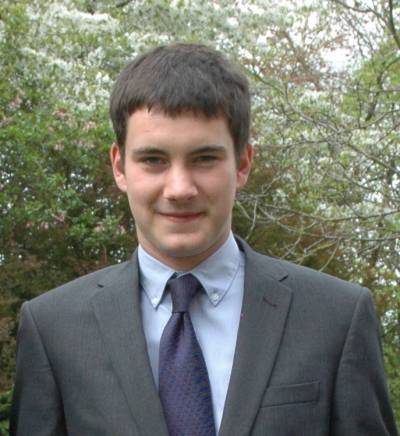
Henry Scholefield is the current holder of the Beef Student of the Year award, sponsored by the Beef Shorthorn Cattle Society. He will discuss the content of his award-winning essay and presentation focused on his vision for profitable and sustainable suckler beef production, with particular reference to managing the potential impact of Brexit on the sector.
Henry comes from Cumbrian farming stock and, prior to studying for a BSc Hons at the University of Nottingham, he gained practical experience on a series of progressive livestock units. Henry is currently on industry placement at Holkham Estate, Norfolk before returning to Sutton Bonnington for his final year.
James Cooper - Pedigree Bulls for the Commercial Producer
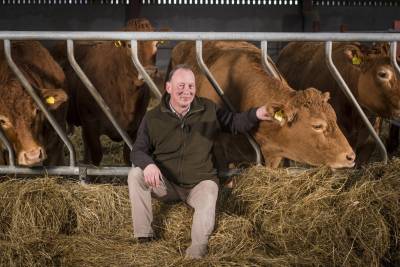
James Cooper farms the Tomschoice herd of pedigree Limousin cattle on 130 acres in the Nidderdale Valley, North Yorkshire, in partnership with his wife Sarah, daughter Laura and son Ben. James is also a director of Ripon Select Foods Ltd, flour millers and food ingredient manufacturers, and a director of the British Limousin Cattle Society, The Yorkshire Event Centre, The National Association of British & Irish Millers and a council member of the Yorkshire Agricultural Society.
During his early years producing pedigree Limousin bulls, James found it increasingly hard to differentiate his pedigree cattle from others in the beef market, therefore rendering them as standard commodity. As a consequence he started to look at how he could create a unique selling point. James will speak about how he achieved this, initially by achieving a high health status and later by producing bulls whose offspring would calve easily and grow quickly for use on heifers or to be used commercially.
Alex Brown - Take our industry higher: Shout about the sire

Levels of sire recording on BCMS passports are historically low in both the beef and dairy sectors, with the average percentage of sires recorded on passports between 2010 and 2017 being 26.6% for beef cattle, and just 11.7% for dairy cattle. This low level of sire recording has a negative impact on a number of areas.
The industry is increasingly reliant on the collection of phenotypic data from commercial sources, such as abattoirs, for the development of new genetic evaluations for cattle, and it is via BCMS that we can construct the pedigree required to successfully run these evaluations.
Currently, for phenotypic data to be included in the evaluation, the sire or maternal grandsire of theindividual must be recorded in BCMS. With the current low levels of sire recording, this renders a vast amount of phenotypic data useless. Increasing the levels of sire recording on passports would drive genetic improvement by increasing the proportion of data that can be utilised in commercially relevant evaluations.
Increasing the number of sire registrations on BCMS would have further positive implications for the industry, by creating consumer trust through traceability and adding value to commercial stock at point of sale.
Alex Brown will be speaking on sire recording twice during the conference, once on the beef day and once during the dairy part of the proceedings. Alex is the Beef Breeding Projects manager at AHDB, and has a varied background in animal breeding research, having worked on multiple livestock and companion animal species.
Before joining AHDB, she spent 6 years at Scotland’s Rural College, firstly working towards her PhD in dairy cattle genomics, before becoming responsible for the monthly dairy genomic evaluations within EGENES.